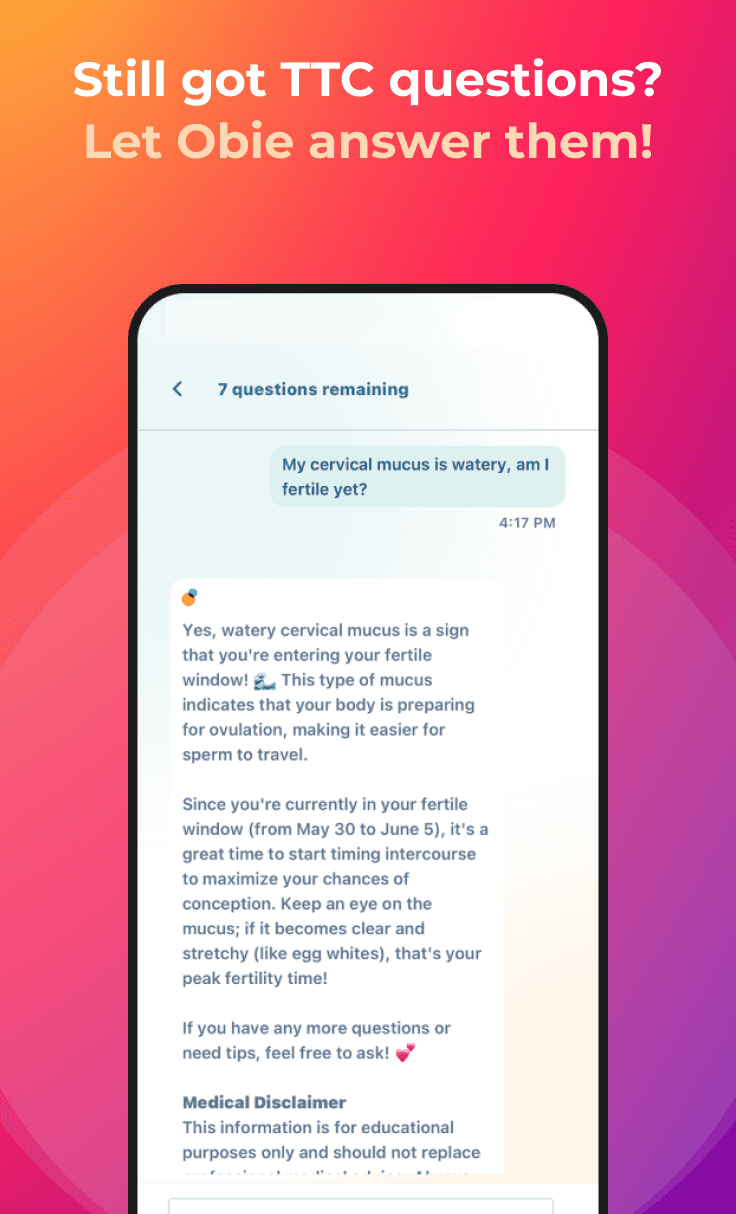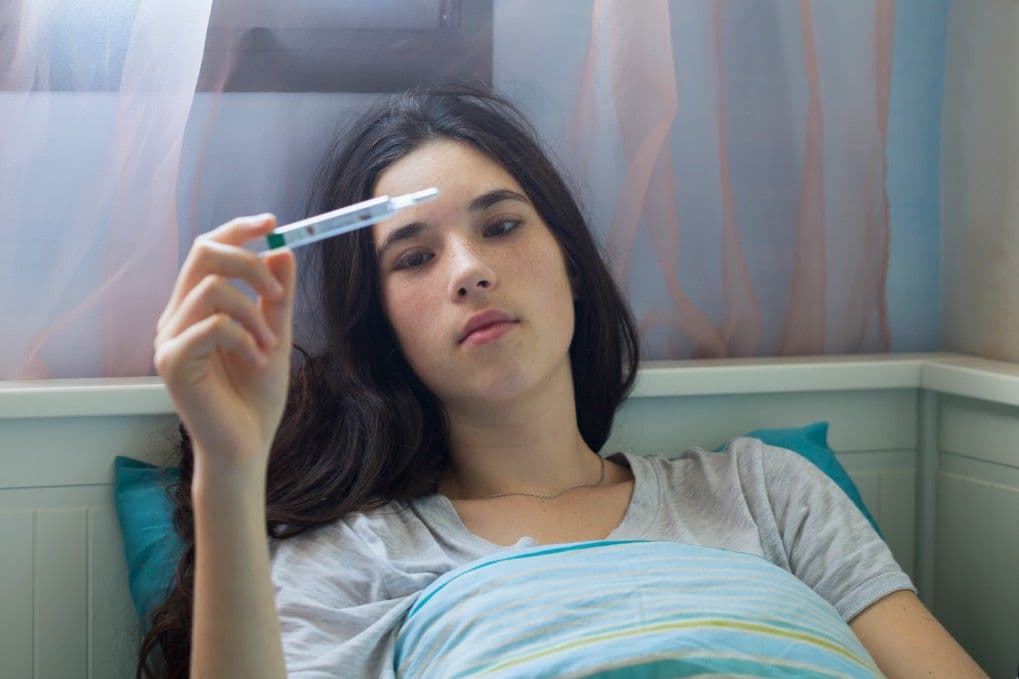Follicle Stimulating Hormone (FSH) Test
Infertility Tests
Obie Editorial Team
FSH, or follicle-stimulating hormone, is a hormone which is being produced and excreted in a small gland inside the brain, the pituitary gland. During the time period leading up to ovulation, during the follicular phase of the menstrual cycle, FSH improves the the growth and of a woman's eggs and makes the egg more mature and ready for ovulation.
As women become older, the quality of their eggs decrease, they are more difficult to fertilize, and they require more FSH to help them ovulate. Elevated FSH levels could indicate a decreased quality of eggs or a low ovarian egg supply. In addition, there are certain medical conditions in younger women where ovarian quality is decreased and FSH elevated.
The FSH Urine Test is a test kit for the determination of FSH (human Follicular Stimulating Hormone) concentration in urine specimens.
TEST PROCEDURE: FSH TEST STRIPS
Testing for FSH levels should be done betwen cycle days 2 and 4. Cycle day 3 is defined as the third day of menstrual bleeding. Open the pouch of the test strip by tearing along the notch and remove the test kit from the pouch and use it as soon as possible. Immerse the strip into the urine with the arrow end pointing towards the urine. Do not immerse past the MAX (marker line). Take the strip out after 3 to 4 seconds and lay the strip flat on a clean, dry, non-absorbent surface. Wait 10-20 minutes and read result. It is important that the background is clear before the result is read. Do not read results after more than 30 minutes.
Normal FSH Follicle Stimulating Hormone
Normal FSH level will differ depending on a person's age and gender.
Male
Before puberty: 0 - 5.0 mIU/ml
During puberty: 0.3 - 10.0 mIU/ml
Adult: 1.5 - 12.4 mIU/ml
Female:
Before puberty: 0 - 4.0 mIU/ml
During puberty: 0.3 - 10.0 mIU/ml
Women who are still menstruating: 4.7 - 21.5 mIU/ml
After menopause: 25.8 - 134.8 mIU/ml
INTERPRETATION OF RESULTS
Negative: This indicates a normal, a low FSH level. Only one color band appears on the control region or the test band appears but is lighter than the control band. The FSH concentration of the sample is below the detection sensitivity of 25 mIU/mL.
Positive: This indicates an abnormally elevated FSH level. If two color bands are visible and the test band is equal to or darker than the control band, the FSH is present in the sample at or above the detection sensitivity of 25 mIU/mL.. Elevated urine levels of FSH should be confirmed optimally with blood FSH testing. Positive results only measures that FSH level is at or greater than 25mIU/mL (above average). Elevated FSH levels could indicate that the quality of the eggs is diminished, and that menopause is close or has happened.
- As with all diagnostic tests, results must be considered with other clinical information available to the physician. A definite clinical diagnosis should only be made by the physician after all clinical and laboratory findings have been evaluated.
- Single measurement of FSH level may give misleading result due to the pulsatile nature of FSH secretion. Samples drawn at different times of the day may vary. Elevated levels of FSH should be confirmed by more than one FSH measurement. With positive results, please consult a doctor.
- The test results should not be affected by pain relievers, antibiotics and other common drugs. After using the pill or patch that contains hCG or LH may affect the test result and should not be taken while using this test kit. In addition, the test will not work properly if you are pregnant or already menopausal.
- A positive FSH test only measures that FSH level is at or greater than 25 mIU/mL (above average) and the transition of menopause is suggested. Menopause by definition is having gone 12 moths without a menstrual cycle. A positive FSH test does not give information on exactly when menopause will be reached.
- If a negative result is given while some of the common symptoms associated with menopause are experienced, consult with the physician.
- A low FSH level may be observed if there is a presence of a tumor in hypothalamus.
Q: Will the amount of liquid I drink affect the result?
A: Heavy intake of fluids before testing will dilute the hormone level in your urine. Limitation of the amount of fluid intake for about two hours before you collect your urine is suggested.
Q: How accurate is the test?
A: In both laboratory and consumer clinical studies, the FSH Urine Test has been proved to be greater than 99% accurate.
Q: Which factors may affect the test result?
A: The test results should not be affected by pain relievers, antibiotics and other common drugs. After using the pill or patch that contains hCG or LH may give a false positive result and should not be taken while using this test kit. In addition, the test will not work properly if you are pregnant or menopausal. Also, recent oral contraceptive use or breastfeeding can affect the results.
Q: What should I do if the positive result is observed?
A: A positive result only measures that FSH level is at or greater than 25mIU/mL (above average) and the transition of menopause is suggested. A positive FSH test does not give information on exactly when menopause will be reached. As all diagnostic tests, all results must be considered with other clinical information available to the physician.
Q: What should I do if the FSH Test result is negative while I experienced some of the common symptoms associated with menopause?
A: Consult with your physician as soon as possible.
Q: I am close to the age of menopause. My test reads positive but I still have regular periods. Why is this?
A: A positive FSH test only measures that FSH level is at or greater than 25 mIU/mL (above average) and the transition of menopause is suggested. Menopause by definition is having gone 12 moths without a menstrual cycle. A positive FSH test does not give information on exactly when menopause will be reached.








